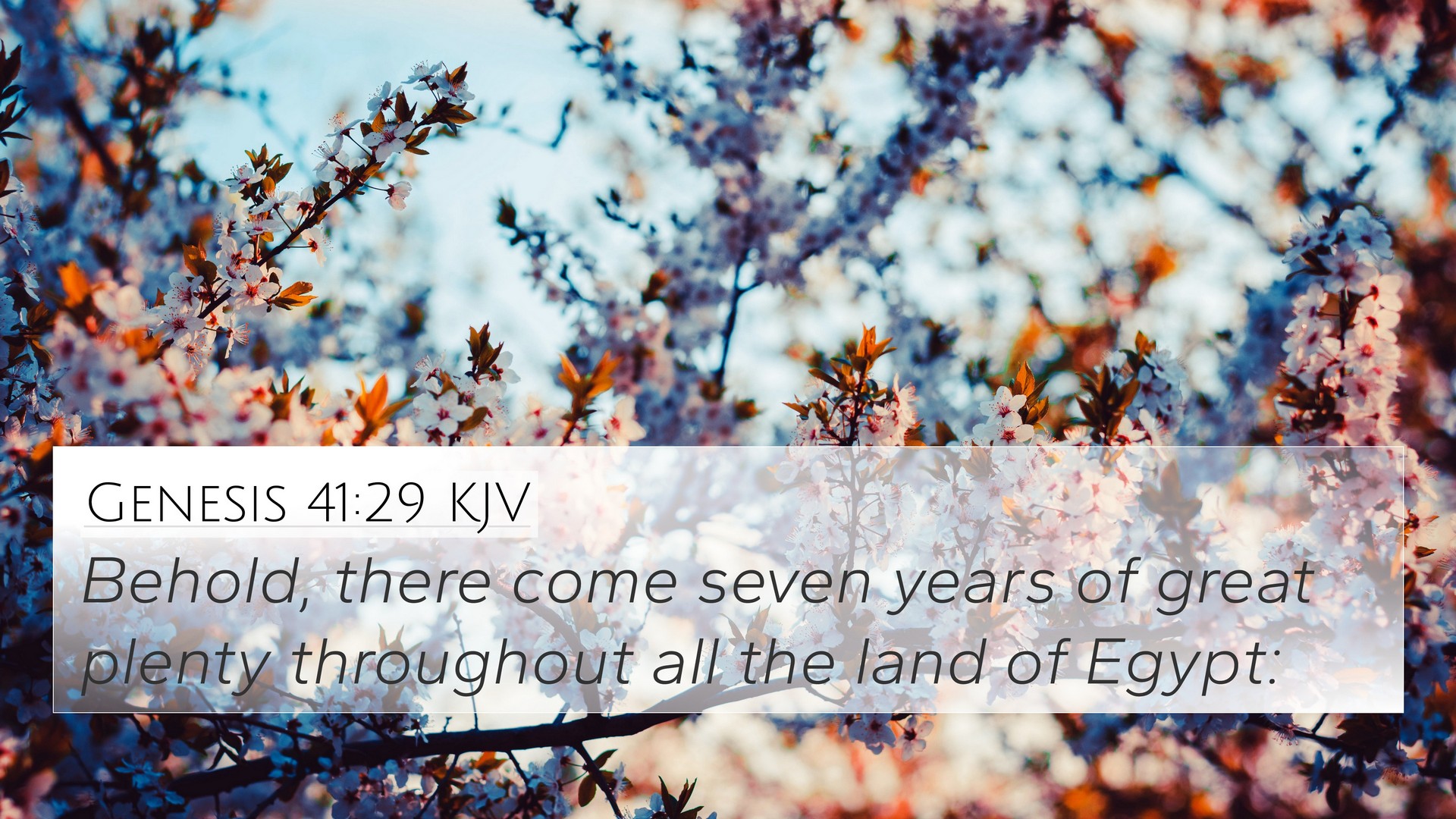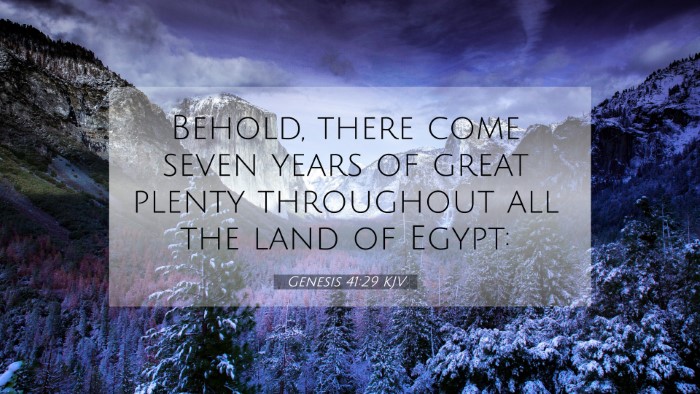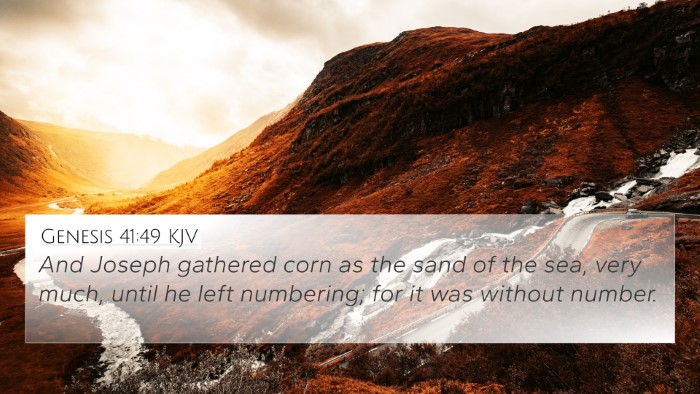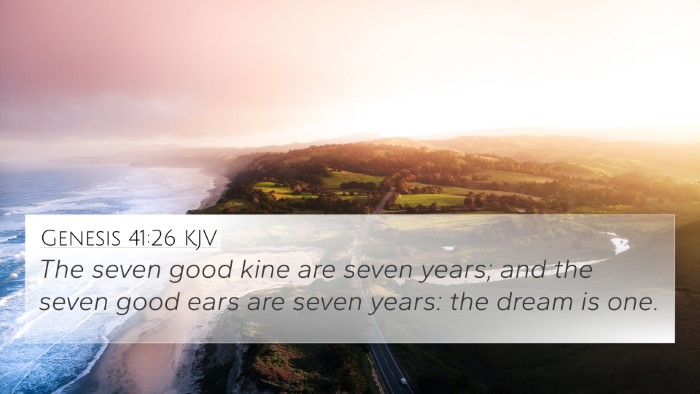Understanding Genesis 41:29
Bible Verse: Genesis 41:29
Verse: "Behold, there come seven years of great plenty throughout all the land of Egypt."
Summary and Meaning
This verse is part of the narrative where Joseph interprets Pharaoh's dreams, signaling a forthcoming period of abundance in Egypt, followed by a severe famine. The emphasis on "seven years of great plenty" serves multiple interpretative purposes in biblical theology.
Commentary Insights
Matthew Henry's Commentary
Matthew Henry notes that this proclamation of plenty signifies God's providence and foreknowledge. He emphasizes the importance of preparation and prudence during times of abundance, suggesting that God's revelations, such as the dream interpretations, serve to motivate wise actions among leaders.
Albert Barnes' Commentary
Albert Barnes elaborates on the significance of "seven" as a number representing completion or perfection in scripture. The mention of great plenty sets the stage for an instructive contrast with the subsequent years of famine, highlighting God's sovereignty in controlling both prosperity and hardship. This foreshadows the need for strategic planning and resource management.
Adam Clarke's Commentary
Adam Clarke discusses the socio-economic implications of the dream's interpretation. He suggests that Joseph's foresight allows for the establishment of grain reserves, which illustrates divine providence ensuring the survival of Egypt and neighboring nations during the impending famine. Clarke points to the importance of divine revelations in equipping leaders with foresight and wisdom.
Bibliological Significance
Genesis 41:29 is pivotal in understanding themes of preparation and God's providence. The verse acts as a linking point for various biblical themes, making it essential for a fuller understanding of scriptural narratives.
Connections with Other Bible Verses
- Genesis 41:30 - Discusses the following years of famine.
- Proverbs 21:20 - Emphasizes wise management of resources.
- Matthew 6:19–20 - Visualizes the need for storing treasures in heaven, paralleling the theme of preparation.
- Acts 11:28 - Covers the prophetic warnings regarding famine.
- 1 Corinthians 16:2 - Calls for setting aside funds for future needs, reflecting planning habits.
- Luke 14:28 - Urges counting the cost before undertaking projects, akin to Joseph's management strategy.
- Psalm 37:25 - "I have been young, and now am old; yet have I not seen the righteous forsaken, nor his seed begging bread," which reflects God's provision during hard times.
Thematic Analysis and Cross-Referencing
The themes present in Genesis 41:29—prosperity, famine, and God's central role—can be enriched through cross-referencing different biblical texts. Below are methodologies and tools to enhance your study:
Tools for Bible Cross-Referencing
- Bible concordance for key terms.
- Bible cross-reference guide to understand thematic links.
- Cross-reference Bible study techniques for deeper insights.
How to Use Bible Cross-References
By identifying parallels, one can enhance scriptural understanding and its applications in various life scenarios—be it personal, communal, or spiritual.
Inter-Biblical Dialogue
Genesis 41:29 cultivates a dialogue between the Old Testament’s teachings about foresight and the New Testament's principles of stewardship and providence. Thus, it encourages believers to practice daily vigilance and reliance on God’s providence.
Conclusion
The depth of Genesis 41:29 transcends its immediate application. Through careful examination and comparative analysis across related verses, one can unveil the profound narrative the scripture presents. Additionally, this verse serves as a warning against complacency during abundance and an affirmation of God's omniscience.





